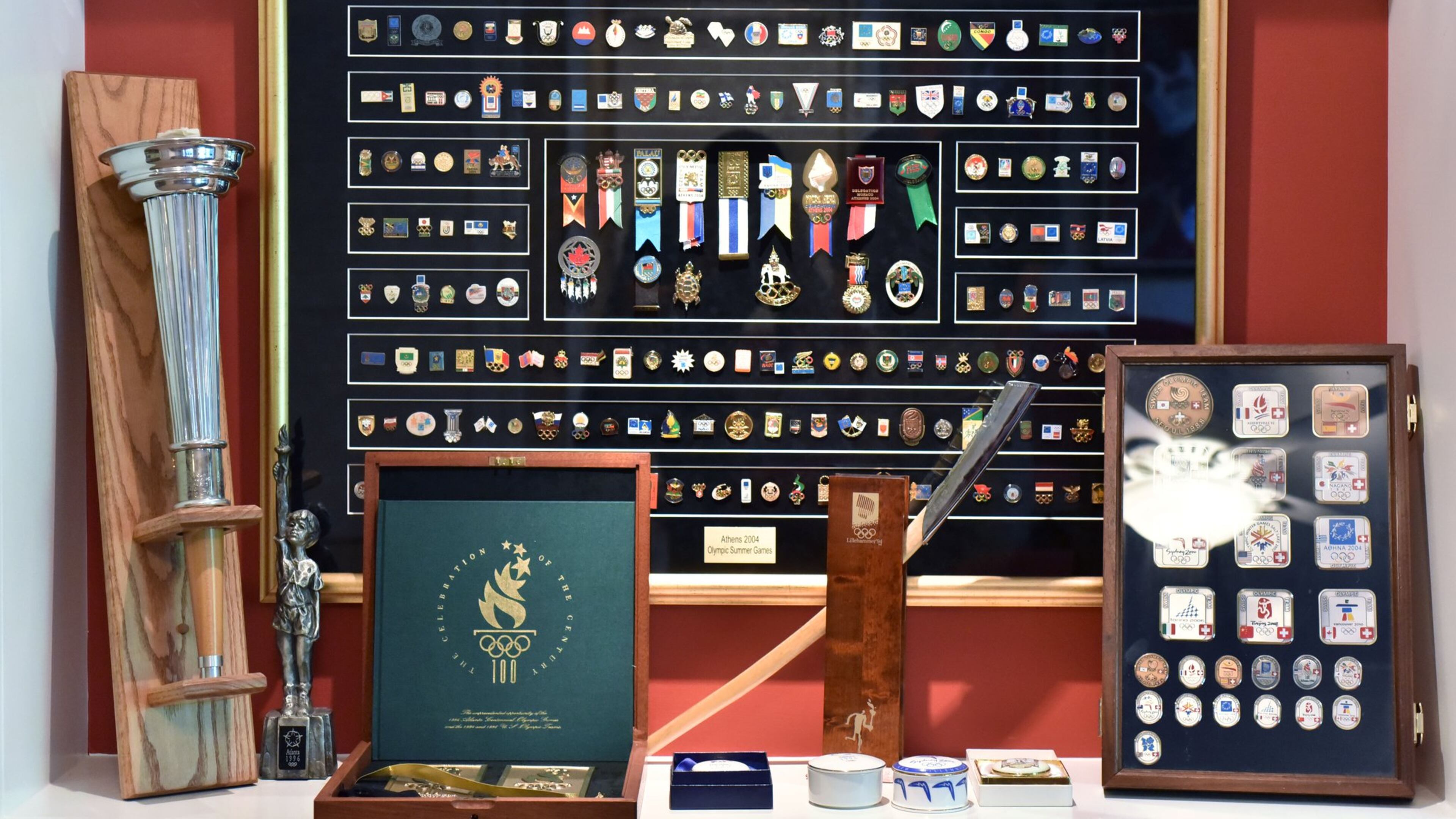Atlanta’s pin fever returns with 2016 Olympics

Penny Heyns, the South African swimmer who had just won gold in the 100 meter and the 200 meter breaststroke, was standing around the Georgia Tech natatorium, her hair still wet, when Scott Reed struck up a conversation.
Soon they were exchanging gifts.
If you wonder how a mild-mannered Atlanta banker is able to meet an international celebrity like Heyns, the answer is that Reed was carrying the ultimate currency: a bag full of Olympic pins.
“It’s a way to interact with other people you would never interact with otherwise,” said Reed, 59, thinking back to that day during the 1996 Atlanta Games, when he saw Kerry Strug’s valiant vault, watched the finals in women’s swimming, and scored a South African pin from Heyns.
As the 2016 Olympics begin in Rio de Janeiro later this summer, Atlanta’s pin collectors will rouse themselves from their two-year hibernation and begin trading again.
Though the Atlanta Games happened 20 years ago, the event spawned a population of hobbyists, whose activities pick up steam with every summer and winter Olympics. Reed said attendance of the Atlanta Pin Collectors’ monthly gathering this Wednesday at the Varsity, the famed fast-food giant near Georgia Tech, will probably double to 40 or 50 people.

A group of collectors set up tables at Centennial Olympic Park last Saturday, during celebrations of the 20th anniversary of the Atlanta Games, and trading was brisk.
Most are casual traders, who will enjoy reliving memories of those riotous 17 days in 1996 when the world came to visit. Some of those casual collectors got more wrapped up in the hobby than others.
Josh Jackson, 44, was fresh out of college with a journalism degree in 1994, when he and his family caught the fever. Pin trading had already begun in Atlanta, though the games were a year and a half away, when his mother gave his father some pins for a Christmas stocking-stuffer.
Eventually Jackson and his brother Rich started publishing a 48-page collector’s guide called Pindemonium, which cost $5.99, came out monthly and had about 1,000 subscribers.
They learned to sell advertising, shoot pictures, create layouts, write stories — in short, Jackson had a crash course in creating a magazine, studying almost everything he would need to know when he and some colleagues started Paste Magazine in 2002.
“It was good training,” Jackson said. It was also a fun family activity. He and his brother and their father, Richard Jackson, kept publishing Pindemonium after the Atlanta Games, and visited Salt Lake City; Sydney; Nagano, Japan; and even stopped in to Lausanne, Switzerland, during the bidding process for the 2004 Games.
Jackson will travel to Rio for Paste Magazine to shoot video and write stories about the Rio Games.
And you can be sure he’ll bring some traders along.

Pin-heads stress that no one should expect to make money off pins. David Hackett, 48, is trying to unload a few thousand pins, most of which he’s had since the end of the Atlanta Games.
Back then, he moved from Annapolis, Md., to Dunwoody to run a cluster of souvenir shops set up in tents all over downtown Atlanta. But the predicted crowds of 7 million didn’t show up, and after the bomb went off in Centennial Olympic Park, the GBI and the FBI shut down his tents in the park.
“I lost my rear end,” said Hackett, though he still sounds sanguine about the experience. “I liked the people, I liked everything.” He bounced back with portable NASCAR souvenir shops set up in 18-wheelers that he would drive from track to track.
Pin collecting reached a peak during the Atlanta Games, when the variety expanded dramatically. Sponsors, corporations, athletic teams, venues, National Olympic Committees, media, security details all created pins — up to 50,000 different ones by some estimates.
Hackett is keeping his collection of pins from police and sheriff’s departments and other security outfits. Of the rest, he says, “I hope they’re worth something some day.”
Still, the pins can offer a diversion, and even open up opportunities. Reed said that pin-trading has paid for trips to London, Athens, Salt Lake City and Vancouver, and earlier this year, he took his family to Gothenburg, Sweden, for a meeting of Olympic collectors.
“Then we went to Norway and visited the fjords,” he said. “Basically I got my trip for free and theirs was less expensive than it would have been. I would never have done that if I didn’t collect Olympic pins.”


